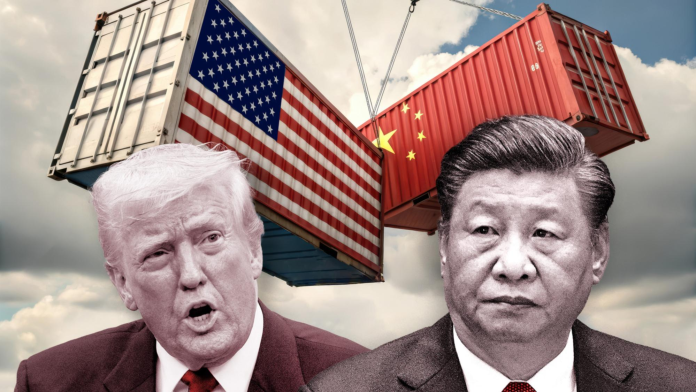US President Donald Trump decided to suspend import tariffs on dozens of countries but targeted China, raising the duty to 125%, according to Reuters.
The change came on Wednesday, less than 24 hours after imposing new steep tariffs on most trading partners. The move shook stock markets but caused US government bond yields to rise.
I thought that people were jumping a little bit out of line, they were getting yippy, you know.
US stock indices rose immediately after the duties were suspended, with the benchmark S&P 500 index closing 9.5% higher. The relief continued in Asian trading on Thursday, with Japan’s Nikkei index rising more than 8%. Oil prices also fell about 1%.
Treasury Secretary Scott Bessent said the rollback was planned from the start to bring countries to the negotiating table.
This was his strategy all along. And you might even say that he goaded China into a bad position.
However, Trump later stressed that his decision was influenced by the global market panic after 2 April. Meanwhile, he continued to put pressure on China, the second-largest supplier of imports to the US. Trump raised the tariff on Chinese imports to 125% from the 104% level that went into effect on Wednesday.
Beijing responded by raising additional duties on US imports to 84% on the same day. China’s foreign ministry spokesperson Mao Ning also shared on X a video of the late Chinese leader Mao Zedong’s speech in 1953 during the war with the United States on the Korean Peninsula, adding a fresh statement:
We are not afraid of provocations. We don’t back down.
Beijing said it had negotiated with the European Union and Malaysia to reinforce trade in response to the tensions, although Australia claimed it rejected China’s offer to work together to counter the tariffs. European activists also expressed concerns about the tariffs, with French MEP François-Xavier Bellamy urging to “respond seriously” to what he called a trade war.
Europe must show that it is prepared to respond seriously to this trade war, not to escalate the situation, but to achieve a fair and stable situation for our businesses. Hundreds of thousands of jobs are at stake.
However, the White House said the 10% tariff on almost all US imports would remain in place. The announcement also does not appear to affect duties on cars, steel and aluminium, which are already in effect.
The 90-day freeze also does not apply to tariffs paid by Canada and Mexico, as their goods are still subject to 25% duties associated with fentanyl. Those duties remain in effect for now, with an indefinite exemption for USMCA-compliant goods.
Trump’s tariffs triggered a multi-day selloff that wiped trillions of dollars off global stocks and put pressure on US Treasuries and the dollar. Canada and Japan said they would intervene if necessary to ensure stability.
